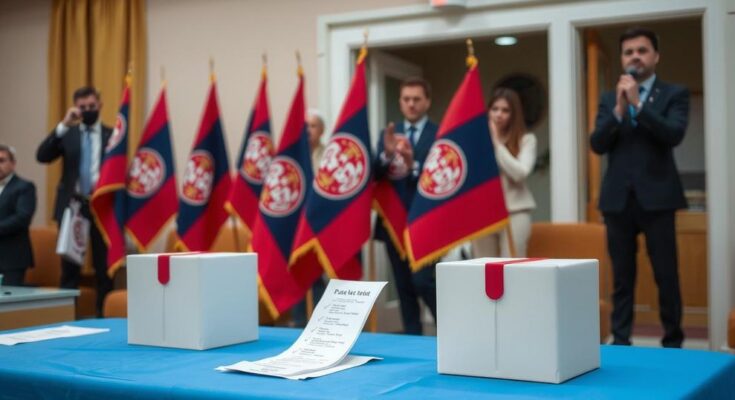The Kosovo Electoral Panel has nullified a ban on the Serb List party, allowing them to participate in the February 9 elections. This decision, made following the party’s appeal, comes after the Central Election Commission’s refusal to certify them due to nationalist remarks by their leader, Zlatan Elek. Prime Minister Albin Kurti and international entities have expressed concerns about the implications of the party’s rhetoric on integration efforts.
The Electoral Panel for Complaints and Submissions (PZAP) in Kosovo has reversed a ban imposed by the Central Election Commission, thereby allowing the Serb List party to participate in the upcoming parliamentary elections scheduled for February 9. This decision comes in response to an appeal lodged by the Serb List, which is recognized as the largest Serbian political entity in the nation. PZAP’s ruling, which is subject to appeal within 48 hours, emphasized the importance of adhering to legal protocols in this matter.
The Central Election Commission had previously denied certification to the Serb List, citing controversial remarks made by its leader, Zlatan Elek, who expressed nationalist sentiments during a candidate presentation. In his public statement, Elek affirmed the party’s intention to challenge the Commission’s ruling. Prime Minister Albin Kurti criticized the Serb List, labeling it as a significant barrier to the genuine integration of Serbian citizens within Kosovo, while international stakeholders such as Germany, the United States, and the European Union have voiced their apprehensions regarding the Commission’s initial decision.
The political landscape in Kosovo is complex, particularly regarding the treatment of the Serbian population and the role of Serbian political parties. Given the historical and ethnic tensions that exist, parties such as the Serb List play a crucial role in representing Serbian interests in Kosovo. However, their nationalist rhetoric often sparks controversy and can provoke opposition from both local and international actors, particularly when it challenges the delicate balance of political discourse within the region.
In conclusion, the Kosovo Electoral Panel’s decision to overturn the ban on the Serb List party marks a significant development in the lead-up to the parliamentary elections. This ruling reflects ongoing tensions between nationalistic sentiments and the pursuit of political stability and integration within Kosovo. The ability of the Serb List to participate further complicates the political dynamics as stakeholders navigate the ongoing complexities of ethnic integration and governance.
Original Source: www.aa.com.tr




